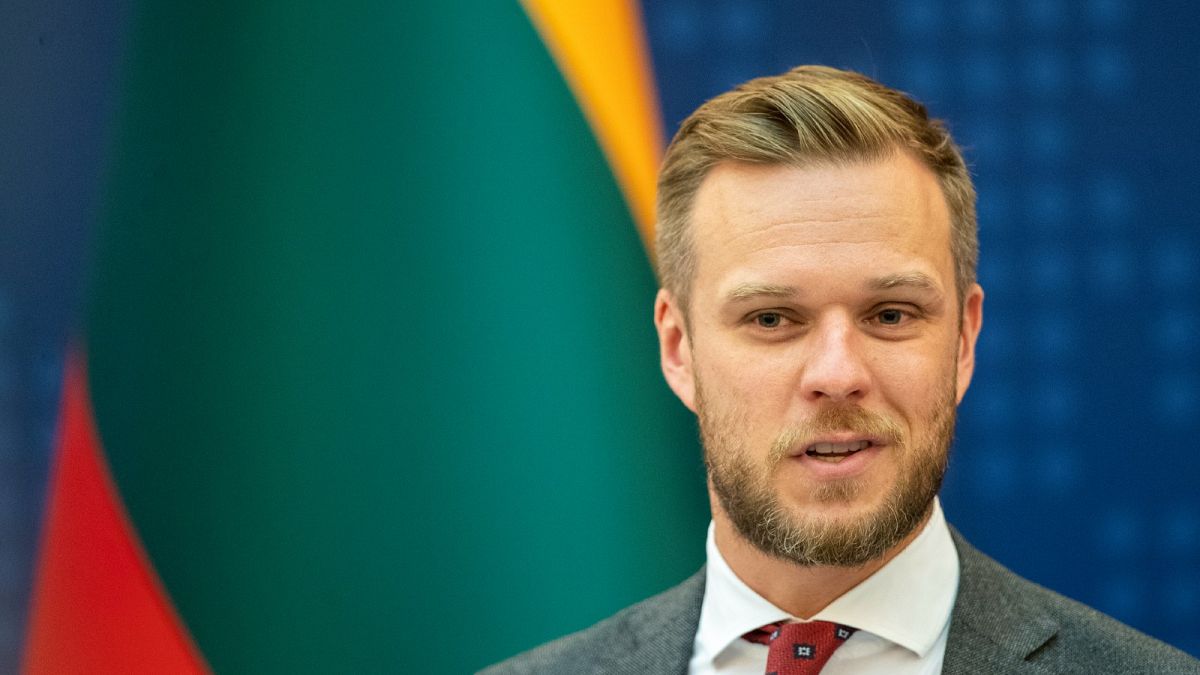Twelve days after the Commission unveiled its plans to impose a phased embargo on Russian oil, negotiations are still dragging on. Hungary is now being accused of keeping the sanction package "hostage".
Despite not being on the official agenda, Brussel's proposed Russian oil embargo loomed large on Monday over a meeting of foreign affairs ministers that failed to break the deadlock after some hours of talks, with accusations some member states are holding the bloc "hostage".
The proposal to phase out Russian oil across the bloc was unveiled 12 days ago by Commission chief Ursula von der Leyen.
But unlike the five previous sanction packages that were swiftly approved by the 27 capitals, negotiations have stalled with no resolution seemingly in sight.
Four member states particularly dependent on Russian fossil fuels — Bulgaria, the Czech Republic, Hungary and Slovakia — are demanding the European Commission allow them to continue importing Russian energy past December 2024, which already constitutes a significant delay from the rest of the bloc.
Hungary is seen as the primary hold-out with Prime Minister Viktor Orban describing the oil ban as an "atomic bomb" for his country's economy.
'We cannot be held hostage'
Speaking upon arriving at the Foreign Ministers Council in Brussels on Monday, Lithuania's Foreign Affairs Minister, Gabrielius Landsbergis, argued that "now, unfortunately, the whole Union is being held hostage by one member state who cannot help us find a consensus."
Asked specifically if he had a message for his Hungarian counterpart, he replied: "We have to agree. We cannot be held hostage."
"The Commission really offered some solutions which we were looking at as too relaxed. We're talking almost of a ban of oil that would end, the phase out, by December 31 of 2024," he went on. "That's a very, very broad scope. I think everybody expected that this would be enough and I cannot explain why it isn't."
"One of the solutions could be to help Ukraine to decouple itself from Russian oil and gas because as you know, the member state who cannot help us find a consensus is dependent on the traffic from Ukraine so if the traffic would be stopped from Ukraine, the sanction question would be solved altogether," he added.
An attempt to break the deadlock last week when von der Leyen travelled to Budapest to meet with Orban failed. Officials stressed afterwards that the discussions were over Hungary's logistical and infrastructure concerns following accusations that Budapest may be trying to leverage its acceptance of the package in order to secure more funding.
Hungarian Foreign Minister Péter Szijjártó rejected the accusation on Monday in a press conference streamed on his Facebook page, telling reporters: "I don't understand what the Lithuanian Foreign Minister is saying."
"It's a lie that we would keep the whole union hostage," he said.
EU 'will succeed'
He said last week that the country would need nearly €800 million in order to upgrade its infrastructures to receive fossil fuels from alternative places.
And he added on Monday that Hungary will need between €15 billion and €18 billion to transition away from fossil fuels, suggesting that most of that should be financed by the EU.
The bloc's foreign affairs chief, Josep Borrell, meanwhile told reporters on Monday following the foreign affairs council meeting that despite talks being deadlocked, the EU's dependency on Russia energy must end.
"One thing is clear for everyone in the Council: we have to get rid of the energy of the European Union with respect to oil, gas and oil coming from Russia. We have to get rid of this strong dependency that makes us very vulnerable," Borrell said.
The Commission's much-anticipated RePower EU initiative, to be unveiled on Wednesday, is now even more eagerly awaited because the financial contributions to support the costly energy transition of member states it should include could help move the needle on the oil ban.
Some diplomats however fear that Orbán might want to drag the talks until EU leaders meet on 30 May for an extraordinary summit where a political, rather than technical, solution could be found, sources told Euronews.
